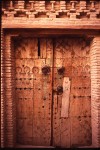 Over the years, traditional knowledge has sustained societies with responsible practices that ensured conservation and economic, social and environmental development. From the international point of view, the 1992 Convention on Biological Diversity commits the signatory States to respect, preserve and maintain the knowledge, innovations and practices pertaining to traditional lifestyles that is appropriate for the conservation and sustainable utilisation of biodiversity. It also commits them to promoting their adoption amongst the whole of society, and encouraging equitable sharing of any benefits resulting from the use of such traditional practices and knowledge.
Over the years, traditional knowledge has sustained societies with responsible practices that ensured conservation and economic, social and environmental development. From the international point of view, the 1992 Convention on Biological Diversity commits the signatory States to respect, preserve and maintain the knowledge, innovations and practices pertaining to traditional lifestyles that is appropriate for the conservation and sustainable utilisation of biodiversity. It also commits them to promoting their adoption amongst the whole of society, and encouraging equitable sharing of any benefits resulting from the use of such traditional practices and knowledge.
 In various aspects of life today, many practices that were traditional in the Mediterranean region are once again being adopted because of new visions of sustainable development for the planet. Organic farming, bioconstruction, permaculture, the use of wild plants for culinary or bromatological purposes, and new water management and distribution, for example, all involve traditional practices stemming from popular culture in the Mediterranean and aim to achieve responsible use of resources.
In various aspects of life today, many practices that were traditional in the Mediterranean region are once again being adopted because of new visions of sustainable development for the planet. Organic farming, bioconstruction, permaculture, the use of wild plants for culinary or bromatological purposes, and new water management and distribution, for example, all involve traditional practices stemming from popular culture in the Mediterranean and aim to achieve responsible use of resources.
In farming, the unsustainable industrial model that arose after the green revolution is now being replaced by a type of organic farming based on ancient techniques such as extensive multi-cropping,
fallow lands, crop rotation, diversity and seed conservation, as well as organic fertilisers and pesticides. In addition to the ecological benefits, this type of farming also seeks social benefits by promoting local markets, contact with consumers and the use of farms for educational purposes.
 The construction of homes using traditional methods, some of which are specific to the Mediterranean, has been on the increase in recent years. Such methods include using local, ecological materials, saving energy by using natural surfaces such as whitewash and adobe, searching for the right orientation of buildings, using alternative energy sources and recycling water.
The construction of homes using traditional methods, some of which are specific to the Mediterranean, has been on the increase in recent years. Such methods include using local, ecological materials, saving energy by using natural surfaces such as whitewash and adobe, searching for the right orientation of buildings, using alternative energy sources and recycling water.
Water management is one of the most pressing problems in the Mediterranean basin, which is suffering seriously from desertification and the loss of aquifers. The unsustainable water use that has resulted from seeing water as a mere economic factor is being turned round today, with water once again being seen as a factor that is inseparable from life for all living beings on the planet, as it was historically in the Mediterranean basin and in the Middle Eastern desert. This change of mindset can be noted in the efforts being made in waste water treatment, in the importance placed on aquifers and wetlands, and in the installation of water-saving irrigation systems.
Med-O-Med program will enhance this intangible heritage, that should be conserved, but also can be used as inspiration source for sustainable solutions for the environmental and social actual problems.
This post is available in: English Español

